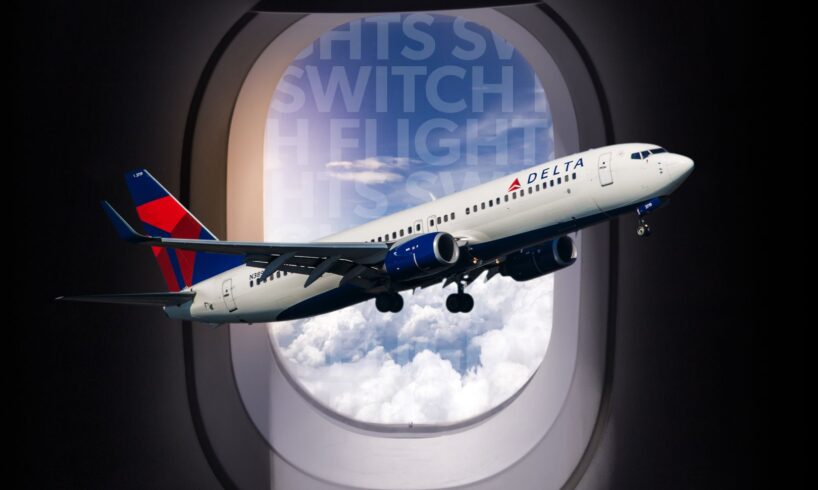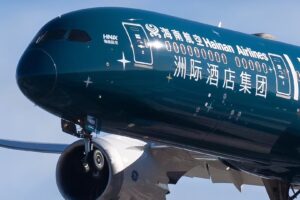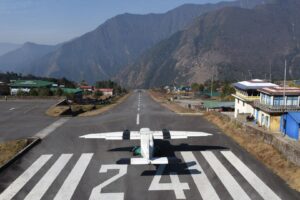
Image: US Bureau of Transportation Statistics
The question of why airlines sometimes offer money to change flights can surprise many passengers, especially when they hear the offer in person at the airport or on an aircraft through the announcement system. Just as surprising can be the incentive offered, as it can reach hundreds or even thousands of dollars. Interestingly, these situations happen much more often than you might expect and are a consequence of a widely used and well-thought-out airline strategy
.
In this article, we will examine why and when airlines decide to pay passengers to change flights. We will explore the practice of overbooking and explain how to make the most of it as a passenger. If you have ever wondered what to do in such a situation, then continue reading, as often airlines are willing to pay large sums to avoid even costlier consequences.
Why Do Airlines Offer Money To Volunteers?
Photo: Tada Images | Shutterstock
In short, it is all about risk management and mitigating losses. Most operators regularly overbook their flights, meaning they sell more tickets than there are seats available. It’s a strategy based on statistics to offset ‘no-shows.’ The problem arises, however, when everyone shows up to the flight, and it needs to be solved fast. In such situations, airlines usually ask for volunteers to give up their seats in return for monetary compensation.
For example, as reported by Andy’s Travel Blog, in 2021, a family of five was offered $4,500 per seat on a flight to Iceland after the airline was forced to find 30 volunteers. These situations, although they may not seem to be the standard, happen more often than expected, and are usually resolved to the satisfaction of both sides. The passengers can receive money for volunteering, and the airlines avoid backlash and the need for involuntary cancelations, also known as bumping.
Overbooking is a relatively common practice, as many passengers often do not show up for their flights. According to the FAA
, 5% to 15% of passengers do not make it to their flights due to delays or changes in plans. The airlines can legally sell more tickets than they have seats available, but they are required to pay out compensation and provide alternative travel options to those who are affected.
What Causes Overbooking?
Photo: Grant Wickes | Flickr
It is the effect of many operational and economic factors combined that causes overbooking. Airlines are continuously tracking no-show rates, which tell them how often passengers, despite paying for their tickets, do not come to the gate. Depending on the time of year, these can range anywhere from 5% to even 15%. That is why operators knowingly sell more tickets than they can accommodate (such as 105 for an aircraft with 100 seats).
These strategies are shaped by revenue management tactics that aim to maximize profits. When everything goes to plan, the airline achieves optimal load factors per flight and simply makes more money. Unfortunately, when all passengers show up, airlines have to accommodate those who volunteer to give up their tickets. In cases when no one wants to do that, operators will either increase the incentives or be forced to bump the passengers.
Image: US Bureau of Transportation Statistics
The overbooking problem has been more pronounced in recent years as the travel demand has grown exponentially after the pandemic. According to the Federal Reserve Bank of St. Louis, the average load factor in the USA has returned to pre-pandemic levels, and, during last year’s holiday season, it peaked at even higher rates. For airlines, offering compensation is simply quicker, easier, and more convenient than delaying an entire flight and re-booking tickets.
Related
Denied Boarding: These Are The 5 US Carriers With The Most Oversold Flights
Overselling is common practice to maximise efficiency and increase profitability. However, sometimes its doesn’t end well.
What Do Airlines Say About This Practice?
Photo: Erika Cristina Manno | Shutterstock
Airlines have been defending overbooking since the very beginning of the strategy, saying that it’s a vital tool in maximizing their load factor. Airline representatives claim that it allows for a successful increase in revenue with minimal passenger impact, and offsets, to some degree, empty seats. One of the most generous airlines in terms of compensation is Delta Air Lines
, which has been at the center of overbooking discussions many times.
One of the most memorable situations, as reported by Fortune at the time, was when the airline offered $10,000 to passengers willing to give up their seats on a flight from Grand Rapids to Minneapolis in 2022. These situations are definitely not the norm, but they do show how far the operators can go to avoid having to involuntarily remove passengers. According to the Department of Transportation, passengers are entitled to compensation of up to $2,150.
Compensation
Additional info
Voluntary Bumping
Voucher or Cash
Delta sometimes offers gift cards instead of flight credit, with top compensation reaching $10,000.
Involuntary Denied Boarding
Two to four times the price of a one-way ticket (max $2,150 for domestic flights)
Regulated by the DOT, it must be paid on the same day.
Operational Delay or Cancellation
Varies by airline
No minimum requirement in the US. In the EU, up to €600 under EU261, depending on cause
No Seat In Booked Class
Rebooking or Voucher
Downgrades are possible, but passengers can request extra compensation.
Even low-cost carriers, like Southwest Airlines
, oversell tickets. However, they rarely offer more compensation than the legally required minimum. There are no public guidelines published by airlines about how much compensation passengers can expect. However, historically, the most generous is Delta Air Lines, which has offered up to $10,000 per ticket in vouchers, while United Airlines
and American Airlines
have compensated passengers with up to $5,000 in the past.
How Can The Different Scenarios Play Out?
Photo: Pxhere
Most cancellations or delays are met with understandable frustration from passengers. However, it’s important to understand the differences between voluntary and involuntary removals from the passenger list. In the first case, it is the passengers who decide to give up their seats and take the airline’s offer, which usually includes cash, redeemable vouchers, alternative connections, or a combination of all. These scenarios allow for smooth and seamless operations without risking PR or legal consequences.
In the case of involuntary bumping, compensation is predetermined by the Department of Transportation (DOT). Airlines are obliged to provide an alternative connection and compensate the passenger with cash equivalent to 200% of their ticket price for delays from one to two hours (up to $1,075), and 400% of the ticket price for delays over two hours (up to $2,150). These have to be paid no later than 24 hours after boarding has been denied.
It’s important to note that the situation might be less transparent if the boarding is denied due to reasons other than overbooking. Passengers will usually not be eligible for compensation if bumping is due to factors like aircraft changes, weight or balance issues, seat class downgrading, or if the flight was scheduled on a plane with fewer than 30 seats. Also, different rules apply in Europe
, where the UE261 regulations specifically govern compensation.
Related
How These Passengers Experienced The Unthinkable On Southwest Airlines
On a recent flight, the two lucked out in perhaps the best possible way.
Which Risks & Exceptions Should You Know About?
Photo: Jonathan E. Hendry | Simple Flying
The money offered by airlines may seem like an easy way for passengers to make a few bucks. However, it’s important to remember that it may not always be that simple. First and foremost, the compensation is not always cash. Some airlines, like Delta, allow you to exchange them for Amazon gift cards, but most will only give vouchers that can be redeemed on future flights with the carrier.
It could also happen that, despite volunteering to give up the seat, it might not be needed. It happens when the seats eventually turn out to be enough, or when some last-minute cancellations happen. Additionally, if you decide to take the airline’s offer, the next flight might be significantly later, even requiring an overnight stay. Airlines also do not guarantee same-class seats when rebooking, meaning you could fly in economy, even though you initially planned to fly first or business class.
Delay
Compensation
Domestic
0 to 1 hour
No compensation
1 to 2 hours
200% of one-way fare (up to $1,075)
Over 2 hours
400% of one-way fare (up to $2,150)
International
0 to 1 hour
No compensation
1 to 4 hours
200% of one-way fare (up to $1,075)
Over 4 hours
400% of one-way fare (up to $2,150)
It’s also worth taking a look at the statistics. After all, according to the DOT, in the UA, only 1 in 30,000 passengers are involuntarily bumped from a plane, showing that the vast majority of overbooking problems end without problems. Despite this, it’s still very important to always ask about your rights and get the official terms of the agreement on paper, especially when the compensation is in the form of vouchers.
What Is The Overall Takeaway For Travelers?
Photo: Vincenzo Pace | Simple Flying
Passengers should remember that airlines offer money or vouchers for voluntary denied boarding because it’s the most cost-efficient and beneficial way of dealing with overbooking situations. As the demand for flights is soaring, especially during holidays and on popular routes, these situations can happen. For those who are flexible, this can be an easy way to make some money and come out on top. You can always negotiate the terms of compensation and demand any necessary arrangements
These might include food, transport, hotel, and even class upgrades. This is especially important when the delay caused by the situation is longer than two hours. Even if you come forward, it doesn’t mean that you have to take the airline’s offer, and that they will involuntarily deny you the flight if you don’t reach an agreement. In case of involuntary bumping, the rules for selecting passengers need to follow a strict protocol, ensuring that no one is specifically targeted or privileged.
As booking systems get more advanced, airlines will likely be able to more accurately predict which and how many passengers will actually show up at the gate, minimizing such incidents. However, as long as planes are flying with all seats filled, these situations will occur spontaneously and will be an element of the airline’s revenue management strategy. As such, it is important to remember to stay well-informed and know your rights, in order to make the best of these situations.




